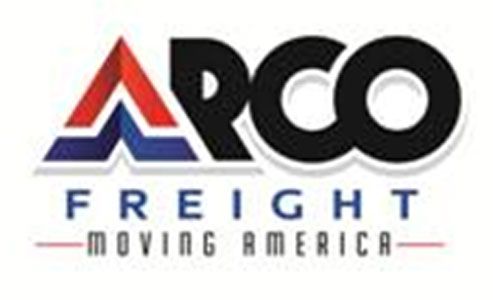Navigating Freight: Should You Choose a Broker or Forwarder?
In the bustling world of shipping and logistics, making the right choice between a freight forwarder and a freight broker can significantly impact the efficiency and cost-effectiveness of your operations. Understanding the "freight forwarder vs freight broker" dynamic is crucial for businesses navigating the complexities of freight transportation.
Understanding Freight Brokers
In the intricate world of shipping and logistics, freight brokers stand out as pivotal players, seamlessly bridging the gap between companies with goods to ship and transportation carriers equipped to move those goods. But what exactly does a freight broker do, and how can they benefit your shipping operations?
At its essence, a freight broker acts as a skilled intermediary, leveraging an extensive network of transportation providers to match your shipping needs with the ideal carrier. This matchmaking isn't just about finding a truck with space; it's about understanding the nuances of your freight, from size and type to required delivery timelines, and pairing it with a carrier that offers the best balance of cost, reliability, and speed.
One of the key services provided by freight brokers is their ability to negotiate favorable shipping rates. Through bulk dealings and established relationships with carriers, brokers can often secure pricing that would be unavailable to individual shippers. This cost efficiency is coupled with a broker's adeptness at handling the complex paperwork and regulatory requirements involved in shipping, further easing the logistical burden on your business.
Brokers are also invaluable for their flexibility and scalability. Whether you're dealing with a sudden spike in shipping volume or need to transport an unusual cargo type, a seasoned broker can quickly adapt to your needs, sourcing the right carrier without delay. This agility makes brokers an excellent choice for businesses with variable shipping volumes or those looking to expand into new markets without committing to long-term contracts with carriers.
However, it's important to recognize that freight brokers primarily serve as coordinators and facilitators. They don't take possession of your goods, nor do they operate the transportation vehicles themselves. This arm's length role means that while brokers are experts at navigating the logistics landscape, they have limited control over the actual transportation process. For businesses that require more direct oversight of their shipments or need additional services like warehousing and distribution, this may be a limitation.
Freight brokers are a vital component of the logistics ecosystem, offering expertise, flexibility, and cost savings that can significantly enhance your shipping operations. Their role as strategic intermediaries can streamline your transportation needs, allowing you to focus more on your core business activities. When
choosing a freight broker, it's essential to consider their track record, the breadth of their carrier network, and their ability to understand and adapt to your specific shipping requirements.
Understanding Freight Forwarders
Freight forwarders are key players in the global logistics network, offering a suite of services that go beyond merely connecting shippers with carriers. They act as architects of transport, expertly navigating the complexities of international shipping to ensure goods move smoothly from origin to destination.
A freight forwarder's role encompasses several critical functions. They advise on every aspect of the shipping process, from the best shipping routes to the most appropriate packaging methods that comply with international standards. Forwarders take charge of the logistical arrangements, ensuring that all necessary documentation for customs and regulatory compliance is accurately prepared and submitted. This can include bills of lading, export declarations, and other essential documents required for transporting goods across international borders.
Beyond paperwork, freight forwarders also handle the physical logistics of shipping. They arrange for the storage and warehousing of goods before shipment and manage the consolidation of cargo to
optimize container space, which can significantly reduce shipping costs. Their services often extend to include packing, labeling, and ensuring the proper handling of sensitive or specialized cargo.
One of the most significant advantages of working with a freight forwarder is their extensive network of industry contacts. This network includes not just carriers but also other logistics partners like customs agents and warehousing providers, allowing forwarders to offer comprehensive, door-to-door shipping solutions. This extensive network is particularly beneficial for businesses engaging in international trade, as it enables forwarders to navigate the complexities of global logistics efficiently.
Freight forwarders are especially valuable for businesses that deal with international shipments. The myriad regulations, customs requirements, and potential logistical challenges that come with shipping goods across borders can be daunting. Forwarders bring expertise in international trade laws, local regulations, and customs clearance processes, making them indispensable partners for navigating these challenges.
However, the breadth of services offered by freight forwarders might come with higher costs compared to more straightforward logistics solutions. Additionally, their comprehensive approach might not be necessary for businesses with simple, domestic shipping needs. Therefore, when considering a freight forwarder, it's crucial to assess the complexity of your shipping requirements, particularly if your business involves crossing international borders or dealing with intricate logistics chains.
Freight forwarders offer a robust solution for businesses looking to streamline their international shipping operations. Their expertise in handling the complexities of global logistics, from regulatory compliance to cargo consolidation and customs clearance, can significantly enhance the efficiency and reliability of your supply chain. When selecting a freight forwarder, consider their experience, network, and the range of services they provide to ensure they meet your specific shipping needs.
Comparing Brokers and Forwarders
The choice between a freight broker and a forwarder often hinges on understanding their distinct roles and the specific benefits they bring to your shipping operations. While both aim to streamline logistics, their approaches and areas of expertise differ significantly.
Freight Brokers primarily serve as intermediaries that connect shippers with carriers, without taking possession of the goods. Their strength lies in their vast network of carriers, allowing them to find the most cost-effective and efficient transportation options for your shipments. They excel in negotiating rates and managing the logistics of domestic shipments, offering flexibility and scalability to businesses with varying shipping volumes.
Freight Forwarders, conversely, offer a more comprehensive service, taking an active role in the shipping process. They not only connect shippers with carriers but also handle the goods, overseeing the entire journey from pickup to delivery. Forwarders are particularly adept at managing international shipments, dealing with customs, and navigating complex global logistics networks. They provide a one-stop solution for businesses looking for end-to-end shipping services, including warehousing, cargo consolidation, and customs brokerage.
Factors to Consider When Choosing
When deciding between a freight broker and a forwarder, several key factors come into play:
- Nature of Your Shipments: Consider the size, volume, and type of goods you're shipping. Delicate, perishable, or high-value items might require the specialized services of a forwarder.
- Domestic vs. International Needs: For international shipping, a forwarder's expertise in navigating customs and regulatory requirements can be invaluable. Domestic shipments might be more efficiently handled by a broker.
- Shipping Volume and Frequency: If your shipping needs fluctuate significantly, the flexibility offered by brokers can be beneficial. For regular, high-volume shipments, especially across borders, a forwarder might offer better economies of scale.
- Service Requirements: Evaluate the level of service you need. If you require comprehensive logistics services, including warehousing, packing, and customs handling, a forwarder is likely your best bet. For straightforward transportation solutions, a broker might suffice.
Making the Decision
Making an informed choice involves a careful assessment of your shipping needs against what each option offers. Start by:
- Evaluating Your Shipping Requirements: Clearly define what you need in terms of shipping volume, frequency, and the level of service required.
- Researching Potential Partners: Look into the reputation, network, and capabilities of potential brokers and forwarders. Consider their expertise, especially in your industry or with your type of cargo.
- Asking the Right Questions: When approaching brokers or forwarders, inquire about their carrier networks, experience with similar shipments, handling of customs and compliance issues, and their approach to problem-solving in logistics.
- Considering Long-Term Relationships: Think about the potential for a long-term partnership. A reliable logistics partner can become an integral part of your supply chain, contributing to your business's growth and efficiency.
The choice between a
freight broker and a forwarder is not one-size-fits-all. It depends on a nuanced understanding of your business's specific logistics needs, the nature of your shipments, and the complexities of your supply chain. By carefully considering these factors and conducting thorough due diligence, you can select a logistics partner that not only meets your current requirements but also supports your business's future growth.
Conclusion
Choosing between a freight forwarder and a freight broker is a critical decision for businesses involved in shipping and logistics. By understanding the differences and evaluating your specific needs, you can make an informed choice that enhances the efficiency, cost-effectiveness, and reliability of your freight operations. Remember, the right logistics partner is an invaluable asset in the fast-paced world of freight transportation.
At
Arco Freight, we pride ourselves on being that invaluable asset to our clients in Jerome, ID, and beyond. With our deep understanding of both freight forwarding and brokerage services, we are perfectly positioned to offer tailored logistics solutions that meet the unique requirements of your business. Whether you're looking for comprehensive, end-to-end shipping services or need a skilled intermediary to connect you with the best transportation options, we have the expertise and resources to support your goals.
Our commitment to excellence and customer satisfaction sets us apart in the logistics industry. By choosing Arco Freight as your logistics partner, you're not just getting a service provider; you're gaining a partner dedicated to ensuring your shipments arrive safely, on time, and within budget. With our experienced team, extensive network, and personalized approach, we ensure that your logistics operations enhance your business's efficiency and growth.
For inquiries or to discuss how we can support your shipping needs, don't hesitate to contact us at
208-324-4706. Let Arco Freight be your guide and partner in navigating the complexities of freight transportation, ensuring your business stays ahead in the competitive world of logistics.
FAQ’s










